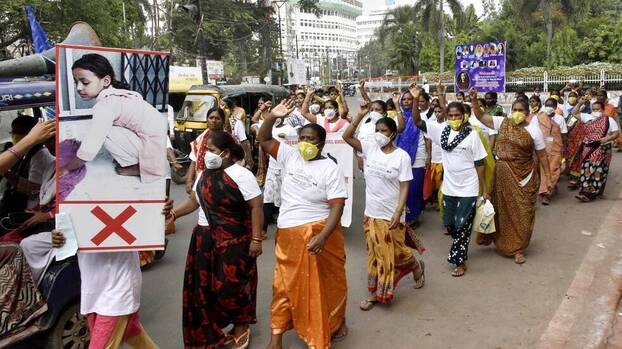
Unlike other workplaces, domestic workers’ workplace — the private home of their employer — functions like a black hole from which little or no information emerges. Nonetheless, the data that is available seems to indicate some crucial trends. For instance, according to a 2021 report of the International Labour Organization (ILO), the vast majority of domestic workers are employed in two regions: about half (50.6 percent) of the world’s domestic workers can be found in Asia and the Pacific, while another quarter are in the Americas. After Asia and the Pacific and the Americas, Africa has the third-largest number of domestic workers.
Maya John is a labour historian at the University of Delhi and Convenor of the Gharelu Kamgar Union (Domestic Workers’ Union).
With a comparatively smaller share of domestic workers, several hundred thousand migrants are known to be employed in the European Union. They often work “under the table” as a result of discriminatory work permit systems. The increasing demand for domestic workers in large parts of Europe stems from what has been identified as a growing “care crisis”. Combined with the increasing informality of the sector, it attracts an unprecedented flow of female migrants from Asia, Africa, and increasingly from Eastern Europe.
The overall vast numbers of domestic workers at a global level and their general working conditions warrant closer scrutiny of this industry, in particular, the highly privatized employer-employee relations. Notably, despite the ILO deliberations that culminated in the Domestic Workers Convention (No. 189), the privatized nature of the work relation, its feminization, the concentration of the most vulnerable women in such work, and its undervaluation in terms of unpaid overtime, low stagnant wages, etc. continue to prevail. Convention 189 speaks of minimum standards of work, effective complaint mechanisms, and compliance with legislation, labour inspection, etc. Paradoxically, such rights have been envisaged in the context of the state’s steady withdrawal from the regulation of employer-employee work relations, including those of the formal sector. Given this fact, and the burgeoning numbers of domestic workers around the world, there is a need to critically rethink the interventions traditionally sought in this domain.
This policy paper makes the case that the precarious personalized paid domestic work relation can be transformed through municipalization. Going beyond the current legal framework, formalization of domestic work is only possible if the state situates itself as the principal employer, making domestic work a public good and domestic workers public employees. These measures stand to benefit all segments of domestic workers, as well as all classes of households, not just a handful of better-off consumers.